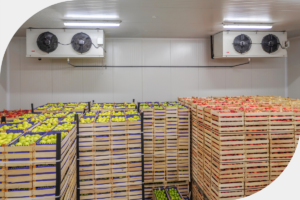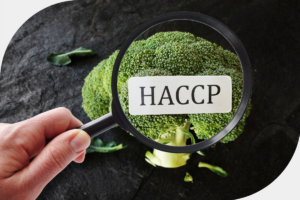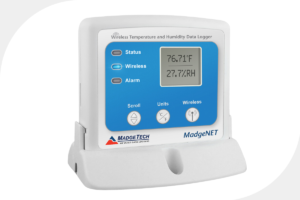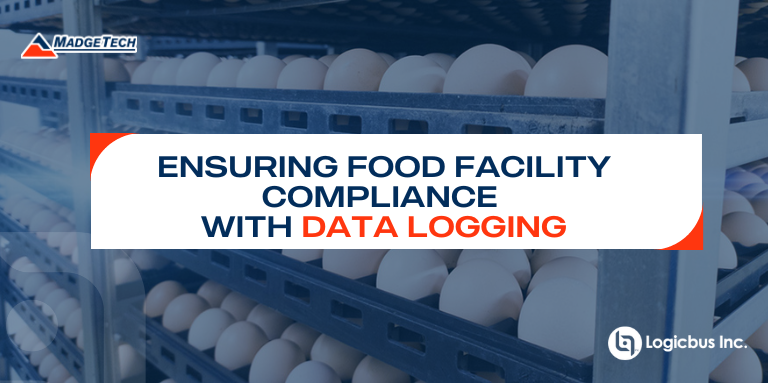
Temperature Control at Every Step
Temperature control is critical at various points in the food supply chain, from receiving and storage to processing and distribution. Data loggers equipped with temperature sensors are strategically placed to monitor critical control points (CCPs). For instance, in cold storage, loggers continuously monitor temperatures to ensure perishable products remain within a safe range, preventing spoilage and foodborne illnesses.
HACCP Compliance
The Hazard Analysis and Critical Control Points (HACCP) system is a foundational framework for food safety. Data loggers play a key role in HACCP compliance by continuously recording temperature data and timestamps. This information provides an essential audit trail for regulatory inspections, demonstrating that temperature-sensitive products have been handled safely.

Real-Time Monitoring for Corrective Action
Temperature deviations can lead to food safety risks. Data loggers are programmed to trigger alarms when temperatures fall outside preset ranges. This real-time monitoring allows for immediate corrective actions, reducing the risk of product spoilage and compliance violations.
Validation and Verification of Critical Processes
Data loggers are invaluable tools that fulfill multiple critical functions within food facilities. One of their primary roles is to provide validation and verification of essential processes, such as pasteurization. By meticulously recording and documenting temperature profiles during these procedures, data loggers confirm that food products have undergone the necessary treatment to eliminate harmful pathogens. This meticulous record-keeping ensures strict adherence to rigorous food safety standards.

Preventing Cross-Contamination
Furthermore, data loggers play a vital role in preventing cross-contamination within food processing areas. They achieve this by continuously monitoring key factors such as refrigeration unit temperatures and equipment surface temperatures. By quickly detecting any deviation from safe parameters, data loggers help maintain impeccable sanitary conditions. This proactive approach significantly mitigates the risk of pathogen spread, enhancing the overall integrity of food products and safeguarding consumer health.
Streamlined Documentation and Reporting
Beyond their monitoring capabilities, data loggers streamline the documentation and reporting process. With impressive efficiency, they generate comprehensive temperature reports that serve as concrete proof of compliance during regulatory inspections and audits. These reports not only fulfill regulatory requirements but also simplify compliance efforts for food facility personnel. This simplified approach allows staff to allocate more time and resources towards ensuring food safety.
Driving Continuous Improvement
Moreover, temperature control with data loggers goes beyond mere compliance; it acts as a catalyst for continuous improvement. By analyzing historical temperature data, food facilities gain insights into recurring problems and trends. Armed with this knowledge, they can refine their temperature control practices, adjust operating procedures, and reinforce their commitment to food safety. This continuous process of refinement elevates industry standards and exemplifies a dedication to the highest levels of food safety.
Key Benefits of Data Logging for Food Facilities:
Ensures compliance with regulatory temperature requirements.
Facilitates HACCP compliance by providing an auditable record of temperature data.
Enables real-time monitoring and corrective action to prevent food spoilage and safety risks.
Validates and verifies critical processes such as pasteurization.
Prevents cross-contamination by monitoring key factors in food processing areas.
Streamlines documentation and reporting, simplifying compliance efforts.
Drives continuous improvement by providing insights for temperature control refinement.




sales@logicbus.com | support@logicbus.com | +1 619 616 7350 | Start conversation

